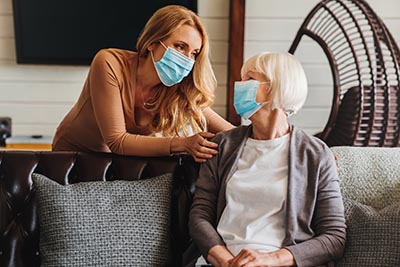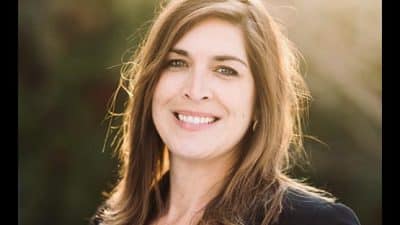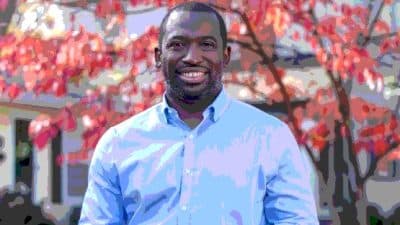
Roughly a third of Americans are now fully vaccinated against COVID-19, and nearly half have received at least one vaccine dose.
Another third, give or take, tell pollsters that they won’t get vaccinated, for a variety of reasons.
The progress that we’re seeing in Virginia and nationwide – reduced case counts, hospitalizations, deaths – is the result of the incredible ramp-up in COVID vaccinations.
We’re going to need to convince at least some of the folks who don’t want to get vaccinated to be able to get the rest of the way toward beating this pandemic.
Easier said than done, right?
This is why I reached out to Jeanine Guidry, the director of the Media+Health Lab at Virginia Commonwealth University, after reading an article from Guidry in which she offered tips to people who want to gently bring up the vaccination topic to friends and family who are, for whatever reason individual to them, vaccine-hesitant, to help them maybe get over the hump.
The first and best piece of advice from Guidry: put down your spears.
“Don’t argue with people,” Guidry advises. “When we get passionate about something, it’s a very human thing to want to convince someone, and that goes on all sides. I would say, please, if you can, don’t ever let this break a relationship, because relationships are very worthwhile, but because also in the case of vaccines, you may not be able to then talk to people two months down the road when they are more open to getting the vaccine.
“Keep that road open. With all the pieces of misinformation that are that are that can be found everywhere in our society right now, you may not be able to stay up to date and all of them. So keep the conversation going.”
The most important thing to do, Guidry said: find out why your friend or family member is concerned.
“People do not, by and large, decide to not get vaccinated out of spite, or because they want to harm people. They have concerns about vaccination because they’re truly concerned that this may not be a safe thing. It is, but realizing that people are trying to do the right thing for their families and for themselves, is, I think, just a really important first step,” Guidry said.
“What makes them concerned? Because there’s a number of reasons. We’ve done some studies in the past year where we’ve asked people exactly that, like, what are some of the, we call them barriers, that people might have for getting the vaccine,” Guidry said.
“If someone says I’m concerned that I won’t be able to get an appointment, or I’m concerned that the vaccine is going to hurt, or I’m concerned that the vaccine is going to have side effects that are serious, or I’m not sure if COVID is really a real thing, and why would I get a vaccine against something that I don’t believe is really harmful, those are all types of reasons why people can be more hesitant to get the vaccine, finding out what their reason is, I think, it’s the first step,” Guidry said.
Also helpful: “acknowledge people’s fear, show empathy.”
“Listen, I understand, we’ve all been living in a time of tremendous uncertainty for the past year and two, three months now. All kinds of things. Can we go see our grandparents again? Can we celebrate commencement in person? Can we have a cookout for the Fourth of July? Can we go out for dinner? Is my business going to survive? Can we go back to school in person? And if we do, are we safe? All these things play into this environment of uncertainty,” Guidry said.
“I think the vaccine decision comes in the middle of that, and acknowledging that people are nervous, that people are scared, that they may be concerned, is something very human, and it shows empathy. I think that’s one of the other things, too, before you go into all the reasons why the vaccine is safe, and it is safe. Acknowledge that having the questions is not something that’s unusual,” Guidry said.
The next step: share your own narrative.
“I have never been as grateful and excited to get a vaccine,” Guidry said. “As with this vaccine, I get my annual flu shot, I’m up to date on all my vaccines. And usually it’s this sort of like, hey, gotta do this, man, my arm is sore. We all talk about going back to quote unquote normal, whatever that may mean. This vaccine is our path there.
“I had this very strong sense of, I am now as protected, because I got my second dose about three weeks ago now, I’m what is considered fully vaccinated. I’m as protected as I can be. And before this, I was dependent on the preventative methods that we have been adhering to for the past year and three months.
“I think that that feeling safe or feeling safer, that experience of relief, we’ve seen that, too,” Guidry said.
The personal touch is going to be far, far more effective than citing statistics and reframing media narratives.
“Yes, the vaccine is incredibly effective. It has a very high efficacy. The vaccines are very safe. But I think when it boils down to it, tell someone your story, and tell them why you decided to get the vaccine, tell them what that experience was like, tell them for your family why this was the right decision, because this will come down to individual decisions. I think sharing that is, all of a sudden, a personal experience that may be very relevant to the person who may have some concerns,” Guidry said.
Story by Chris Graham










